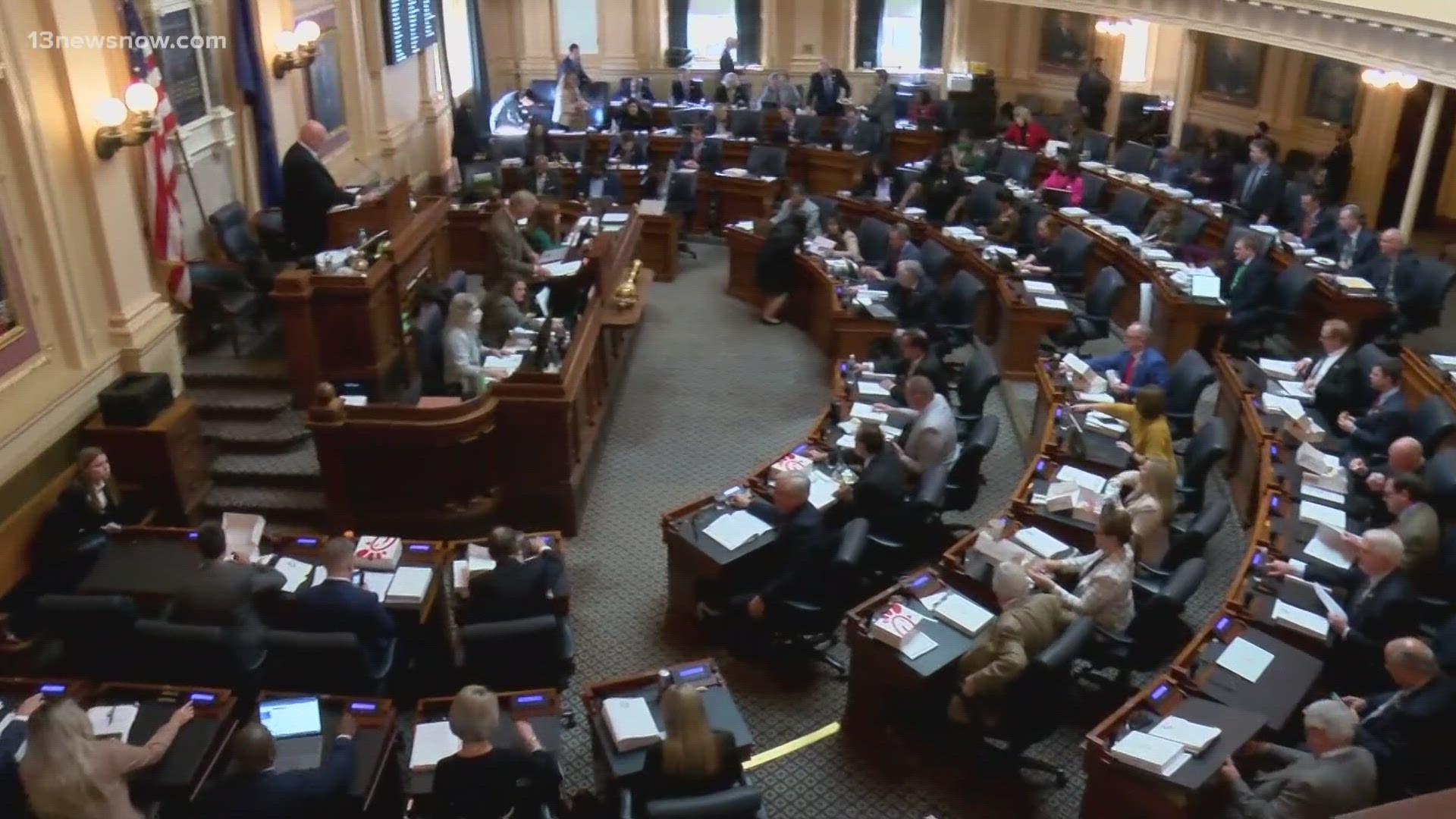PORTSMOUTH, Va. — While Virginia's current budget impasse may not present the possibility of an impending shutdown or disruption of state-funded services, the gridlock amongst lawmakers may present challenges for school divisions in their planning process moving forward.
"It poses problems for their budgeting and planning in particular. They’re expecting a certain sum from the state, but then don’t put in requests, it causes them to not be able to plan," said Ben Melusky, an associate professor of political science at Old Dominion University.
Though Virginia has a surplus north of $3 billion -- with the exact amount in dispute — the politically divided General Assembly has so far been unable to reach a compromise on how much of it should be spent on core government services like education and behavioral health care, or returned to taxpayers.
Delegate Barry Knight (R-Chesapeake), the top budget negotiator for Virginia House Republicans, said Monday he offered a major compromise nearly two weeks ago that would end his party's push this year for a reduction in the top individual tax rate, but he's still waiting for a response from Democratic leaders.
"It's a tremendous compromise," Knight said of his offer to the Democratic senators with whom he's been working for months to try to reach a resolution on the state's budget stalemate.
Knight's proposal does not include a corporate tax cut sought by Republican Gov. Glenn Youngkin, who had also advocated for the now-abandoned cut to the top individual tax rate. Knight had previously declined to discuss the July 19 counterproposal in detail but granted an interview Monday after the Associated Press obtained a copy of the letter.
Just one example of the impact on local school divisions can be seen by two noted examples in Portsmouth Public Schools.
According to a division spokesperson, the division is estimating a $3 million revenue "shortfall" because the state "did not give any direction or provide funding" regarding a sales tax calculation error through the Virginia Department of Education.
Additionally, they included the unclear future of a retention bonus initiative written in Governor Glenn Youngkin's original budget proposal:
"... a 1% retention bonus was included for FY 22-23 employees who returned in FY 23-24. In the latest budget proposal, there were no funds allocated for this purpose. However, many school divisions included these bonuses in their final operating budgets with the expectation the General Assembly would include funding for them in its final budget as well."
"Because we’re in the middle of a two-year budget, funds can still be dispersed out. You can still pay bills, but from the planning perspective, that’s where things get hurt," Melusky said, adding that non-profit organizations face some of the same logistical challenges because of the ongoing negotiations.
In Hampton, a school division spokesperson there said:
"...the 2023-2024 Hampton City School Budget was approved based on the General Assembly's HB 1400 Substitute Budget. Therefore, the division will continue to operate based on the projected state funding in this budget until any further action is taken by the General Assembly on the state budget."
The gridlock has created uncertainty and dismayed lobbyists, advocates, school divisions, and longtime state government observers. Bipartisan talks broke down in late June, after Republicans thought they were close to a deal but Democrats put forward a new proposal of their own.
The latest House GOP plan still calls for further increasing the standard deduction for all Virginians, and it would raise the threshold for the top personal income tax rate from $17,000 to $21,000 — something Knight said was aimed at offering relief to low-income Virginians. It would eliminate the age restriction on a military pension benefit and increase the interest exemption for businesses, according to Knight's letter.
But it would drop the previous GOP position that called for lowering the top individual tax rate from 5.75% to 5.5%, something Knight said Democrats had resisted.
While insisting that "Virginia deserves a budget," Knight said if there's no major progress in the next few weeks, it may begin to make more sense to start fresh during next year's legislative session.
Every seat in the General Assembly will be on the ballot in the fall, which Melusky said may be another element in the negotiating process, as lawmakers from both sides may want to demonstrate "wins" in the negotiating process back to their constituents and on the campaign trail.
The Associated Press contributed to this report.

